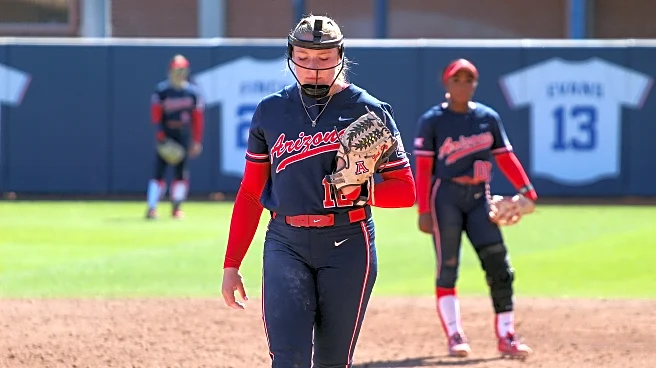Rapid Read • 8 min read
Saudi Arabia is witnessing significant growth in its biodegradable plastic market, projected to reach $221.98 million by 2033 from $78.65 million in 2024. This growth is driven by environmental concerns and the rising demand for sustainable packaging solutions. The market is concentrated in major cities like Riyadh, Jeddah, and Dammam, where consumer demand and government initiatives are fostering adoption. The Saudi government has implemented policies to reduce plastic waste and promote sustainable materials, influencing industries such as packaging, agriculture, and consumer goods to seek eco-friendly alternatives. Despite advancements, challenges such as high production costs and limited composting infrastructure remain.
AD
The expansion of the biodegradable plastic market in Saudi Arabia is crucial for addressing global environmental concerns, particularly plastic pollution. As industries shift towards sustainable practices, this market growth could set a precedent for other nations, encouraging investment in eco-friendly materials. The government's support through regulations and incentives is pivotal in driving this transition, potentially influencing global markets and policies. The shift towards biodegradable plastics could reduce reliance on conventional plastics, benefiting ecosystems and human health. However, overcoming challenges like consumer awareness and infrastructure development is essential for maximizing the market's potential.
Saudi Arabia's focus on biodegradable plastics is expected to continue, with further investments in innovation and infrastructure. The government may introduce more stringent regulations and incentives to accelerate adoption. Industries are likely to increase collaboration with academic institutions and private sectors to enhance technological advancements. Consumer education campaigns will be crucial in raising awareness about the benefits and proper disposal of biodegradable plastics. As the market grows, stakeholders may explore opportunities for international expansion, aligning with global sustainability goals.
The shift towards biodegradable plastics in Saudi Arabia highlights broader ethical and environmental implications. It reflects a growing global consciousness about sustainability and the need for responsible consumption. This transition could influence cultural attitudes towards waste management and environmental stewardship, fostering a more sustainable society. Additionally, the development of biodegradable plastics may spur innovation in material science, leading to new applications and industries. Long-term, this could contribute to a circular economy, reducing waste and promoting resource efficiency.
AD
More Stories You Might Enjoy












